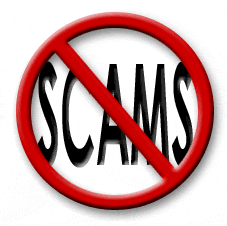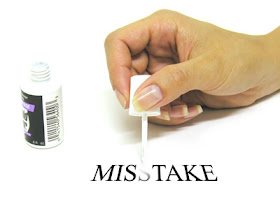It's always nice to learn why a story was rejected and, although it hurts, the greater the detail the better. David Farland's latest article gives 10 reasons why he rejects stories. I'm just going to summarize them (well, that
was my plan), so I recommend you read his article for the details.
1) The story is unintelligible.
2) The story is unbelievable.
3) Too many adverbs and adjectives.
I hadn't meant to comment on these, but I can't resist. The first time I heard someone say that, as a general rule, a writer should avoid using adverbs, especially those that ended in -ly, I thought they were daft. (And yes, I'm painfully aware of the -ly adverb I just used, but I think it adds something to the sentence that goes toward my point so I'm keeping it. Isn't irony grand?) It took reading Stephen King's book,
On Writing, for me to see the wisdom in this.
If it helps, think of it this way: Instead of using -ly adverbs, use strong verbs. Rather than making a word more interesting, or more meaningful, by modifying it with another word, try making the word itself everything you need.
For instance, rather than writing,
a) "I won the lottery," she said happily.
write
b) Waving her lottery ticket above her head, she jumped up in the air and screamed, "I won the lottery!"
I think that the advice to steer clear of -ly adverbs goes hand-in-hand with the advice to
show rather than tell. I don't think the above example is very good, but hopefully it is enough to give you the sense of what I mean. For the purposes of the example, I should have used one strong verb rather than the adverb ("happily"), but perhaps you can suggest something better in the comments.
Also, there is a change in tone between (a) and (b). I think that (b) hints at the speaker being an extravert and fond of screaming, especially at concerts.
In any case, moving along.
4) Nothing happens.
Make something happen and make it happen earlier rather than later. Try to grab the reader with your first sentence and don't let them go until the last one. I'm sure there are many names for this quality of
can't-put-it-down-edness but I think of it as
narrative drive.
5) Don't confuse your readers.
You may know the story takes place on the 5th moon of Dovan, but your readers won't unless you tell them. After a while folks are going to stop guessing, get irritated, and find something else to do.
6) Remove the boring bits.
I can't remember who said this first, but it's true. If it doesn't absolutely have to be in your story toss it. Ask yourself: does this further the story? If yes, fine. If no, lose it.
As David Farland says, this also applies to writing sentences like, "They shook on it," rather than, "They shook hands on it." If it's clear from the context that what they're shaking are
hands (rather than, say, flippers), then you don't have to include that information. If, on the other hand, the "they" in question are squid-like personages living on the dark side of our moon then you might want to specify which appendages they used.
7) Have a story and tell it.
If a piece of writing is, say, 2,500 words long and has a title that doesn't mean it's a story.
Although there are no rules for what makes a story a story--including the rule that says there are no rules--people who judge story contests generally appreciate it if there is a beginning and an end. You get bonus points if there are characters things happen to and if these events put your hero in danger of not reaching their goal.
I've written a bit about story telling here.
8) Don't cheat
I'm not talking about plagiarism (but don't plagiarise), I'm talking about including something like violence or sex when it has nothing whatsoever to do with the story. To be clear, I'm not saying anything for or against using sex or violence in your stories, but everything in your story,
everything, has to be there for a reason and if that reason is simply to shock or titillate then your story will be weaker for it.
8b) Understand your market
Let's say you're writing a paranormal romance. Including a scene in which a character has something done to them worthy of the movie
Saw means you run the risk of alienating the editor who will make the decision whether to buy your work.
9) Non-formed stories.
See point 7, above: Have a story and tell it.
10) Don't irritate your readers
This is in the same vein as 5, above: Don't confuse your readers. For instance, although I don't believe there are hard-and-fast rules about how many points of view your story should be told from, if you have 5 in 2,500 words you'll confuse your readers.
Dave Farland gives the following example: "John raced out the door, after brushing his teeth." After I read this sentence I parsed it as, "After brushing his teeth, john raced out the door." If a story was filled with sentences like that I would become irritated.
To read the rest of David Farland's awesome article (alliteration can, occasionally, be tolerated ;) click here:
Ten Reasons Why I'll Quickly Reject Your Story.
This ends the list of 10 things which will will send your story to the proverbial dust bin of obscurity, but of course (and unfortunately), there are far more than ten. But take heart, Mr. Farland has just published the next article in this series:
Why Editors Reject Your Story. In that post he discusses what separates stories which receive honorable mention from stories that win.
Cheers!
Related reading:
-
The Starburst Method: How to write a story, from one-liner to first draft
-
Jim Butcher: How To Write A Story
-
How to build a Villain, by Jim Butcher
Photo credit:
A Writer's Journey
"10 Reasons Why Stories Get Rejected," copyright© 2012 by Karen Woodward.























